Over the past three decades, I’ve been very fortunate to spend a good deal of time in Taiwan’s mountains.
I’ve driven cars, ridden motorcycles and buses and hitchhiked along cross-island highways and other scenic roads. I’ve hiked to the top of a score or more of the Baiyue (百嶽) — 100 mountains above 3,000 meters that, back in the early 1970s, were chosen from among Taiwan’s 250-plus highest peaks for their beauty and uniqueness.
On the South Section Two (南二段) trail, which connects the hot springs resort of Dongpu (東埔) in Nantou County with Siangyang National Forest Recreation Area (向陽國家森林遊樂區) in Taitung County, I encountered some hikers on the very first day and others on the ninth and final day. On days two to eight, I saw no humans except the friend I trekked with.
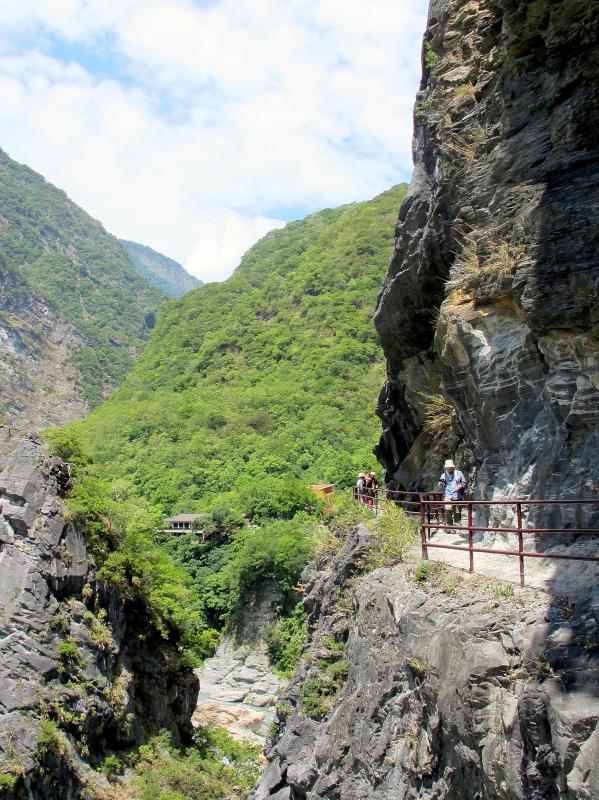
Photo: Steven Crook
In the highlands, I’ve been truly inspired by the scenery and the remoteness. I’ve also been dismayed by the sight of unwanted furniture thrown over cliffs and trash left beside creeks.
Dec. 11 is International Mountain Day (IMD), an observance intended by the UN to draw attention to the challenges that face mountain regions and the importance of highlands to human survival.
First celebrated in 2003, the observance passes almost unnoticed in Taiwan, despite the country having the highest peaks in Northeast Asia, Aboriginal communities that dwell in the uplands and thousands if not tens of thousands of passionate hikers.
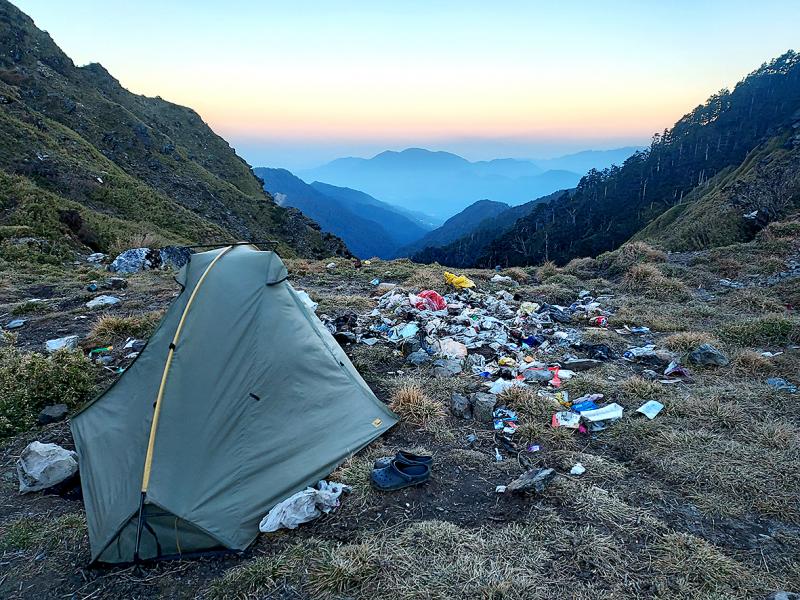
Photo courtesy of Tyler Cottenie
MOUNTAIN TOURISM
The theme of this year’s IMD is sustainable mountain tourism, an issue critical to the ecological wellbeing of Taiwan’s mountain regions. Since logging in all natural forests was banned in 1991, tourism has been one of two industries in the country’s mountainous interior. (The other, specialized agriculture, has its own set of environmental issues.)
Mountain tourism is booming for two reasons. In late 2019, the government announced it would lift many of the access restrictions that applied to mountain and forest areas. And because of the pandemic, millions of people are taking their vacations in Taiwan instead of going abroad.
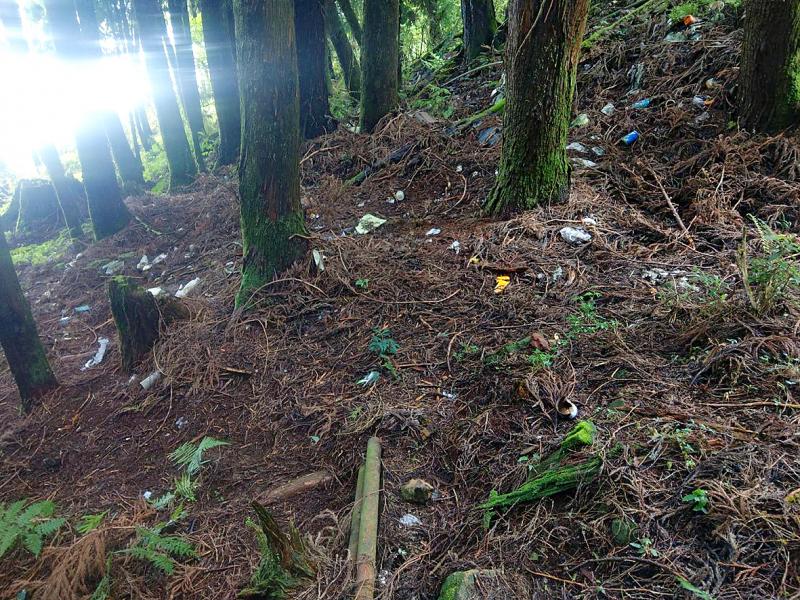
Photo: Tsai Tsung-hsun, Taipei Times
Done well, tourism generates incomes and jobs that help keep mountain communities intact. This could make the difference between an Aboriginal community preserving its culture and language, and that heritage disappearing forever. It can also provide those who live in the mountains — and who might otherwise clear woodlands and hunt endangered species — with compelling reasons to preserve the landscapes and biodiversity that attract tourists.
To get a well-rounded view of the state of tourism in high-altitude areas, I reached out to two friends with far more mountain experience than myself: Mark Roche (originally from Ireland, but a long-term resident of Kaohsiung) and Tyler Cottenie, a Kaohsiung-based Canadian. Both write for the Taipei Times, and both have completed the Baiyue.
TRAFFIC CONTROLS
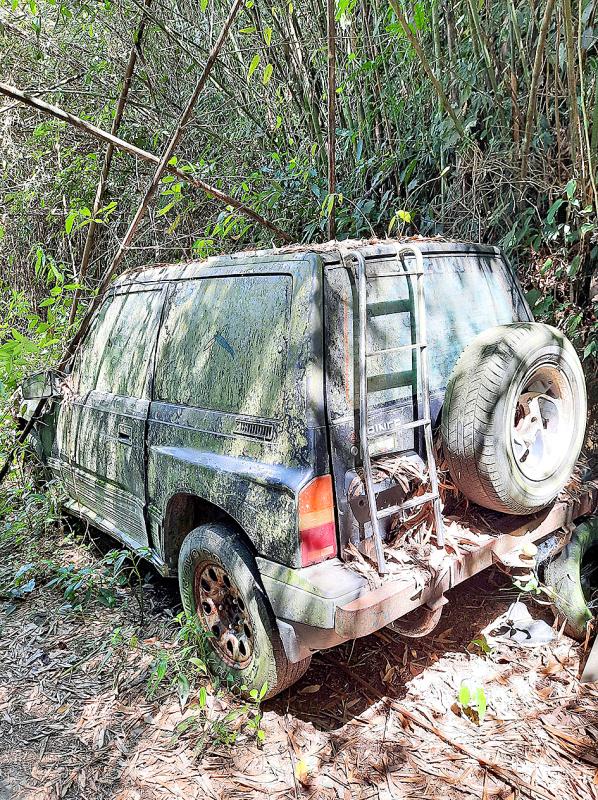
Photo: Steven Crook
According to Roche, who organizes hikes through his business Blue Skies Adventures, the authorities’ major contribution to making mountain tourism more sustainable is keeping visitor numbers down by limiting the number of hiking permits they issue, and occasionally imposing traffic controls on roads into the highlands.
“That has to be a plus. A lot of roads could be improved, but then again, the state of them undoubtedly deters Sunday drivers, and keeps people like that from getting into trouble,” he says.
Where the roads aren’t bad, he points out, there’s sometimes congestion.
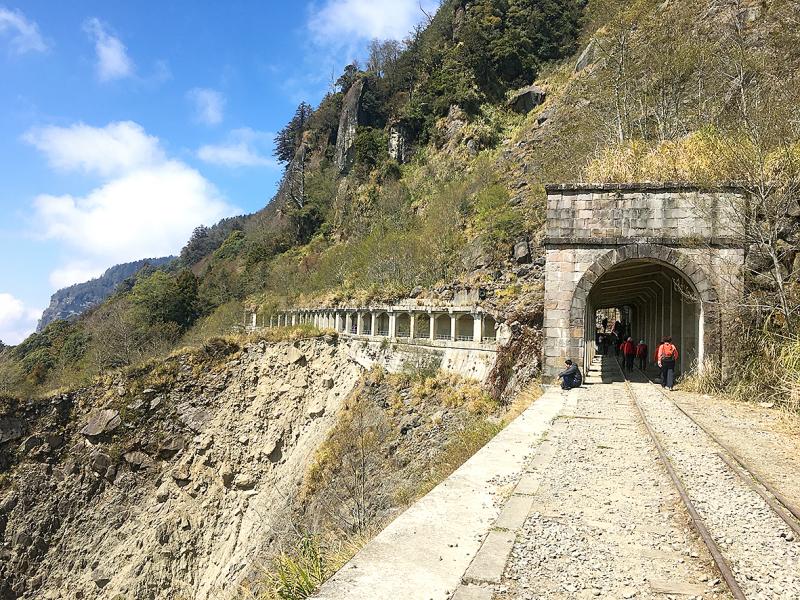
Photo: Tsai Tsung-hsun, Taipei Times
“The number of cars driving up to Hehuanshan [合歡山, where the road crests at 3,275m above sea level] is a pet peeve of mine,” he says. When cycling, he’s had to suffer through “fume-spewing traffic jams, because the road is too narrow for cars to pass each other.”
He also asks why full-size tour buses are allowed to drive up to Lishan (梨山) from Yilan when, in his opinion, “the road just isn’t suitable for vehicles that big.”
Roche thinks traffic controls — like those imposed on the approach to Alishan (阿里山) during cherry blossom season, when only residents and tour buses that have registered in advance are allowed in — should be enforced more often and in more places.
He also hopes that better public transportation can reduce the number of cars, saying: “Buses no larger than 20-seaters offering shuttle service to more popular destinations would be great.” On certain roads, he adds, vehicles with more than eight seats are already barred.
One place that has suffered from an influx of tour groups and vehicles is Toeuana (得恩亞納) in Chiayi County’s Alishan Township. The architecture and forest setting of this small community, built to house Tsou Aborigines displaced by Typhoon Morakot, has drawn comparisons with Shirakawa-go, a UNESCO-recognized World Heritage Site in Japan.
A Jan. 12 report last year by the Chinese-language United Daily News Network (聯合新聞網) quoted a local activist as saying that, while local residents hope to develop tourism, the number of visitors was adversely affecting the environment, causing distress to some residents, and turning the village into a “Ximending” (西門町, a famously busy Taipei shopping district).
ETIQUETTE
When asked about mountain tourism, Cottenie says that bathroom etiquette in the wilderness “leaves much to be desired.”
According to the Web site of the US Forestry Service, human waste should be carried out of protected areas. If that’s impractical, it should be deposited in a cathole at least 15cm deep and 60m or more from the nearest running water, camp or trail. Used toilet paper should also be carried out.
“However, many hikers don’t bury it at all. Often they go right beside the trail, and leave their toilet paper on the ground. This makes for unpleasant odors and loose trash near the trail,” Cottenie says.
Some busier trails have pit toilets, but often these don’t function as planned.
“All the waste is in one place, in theory, and can later be buried. However, the smell in most of these toilets is unbearable, so people end up just going on the ground nearby in the open, creating the same problems,” Cottenie says.
Despite the efforts of volunteers, these facilities seem to lack regular cleaning, he says. In his opinion, “better outhouse design, or more frequent cleaning, and better education,” are required.
Education is essential. When out hiking, I used to throw biodegradable waste like fruit peel into the undergrowth, until I understood that discarding food is likely to change the foraging behavior of wild animals.
The mistakes Cottenie highlights have been repeated at the Mianyue Branch Line (眠月支線) trail in Alishan.
In the past few years, hiking along this disused railway line has become exceptionally popular. Following reports that it resembled a “road of feces,” Chiayi Forest District Office installed two ecofriendly toilets. However, a Jan. 11 report on the Web site of the Environmental Information Center (環境資訊中心) noted that, “usage by tourists far exceeds the frequency of cleaning, making the smell unpleasant. Many tourists still choose to defecate on both sides of the path, and discarded toilet paper can be seen everywhere.”
Because human waste and tissue paper eventually decompose, some who love the mountains worry more about overdevelopment and illegal construction. The area around Cingjing Farm (清境農場) in Nantou County is notorious for unlicensed B&Bs.
There’s still a gulf between the rules that exist on paper and actual enforcement, but at least environmental awareness has grown in recent years. Unfortunately, as an op-ed published by the Chinese-language United Daily News last July points out, “If only one in 10 people is environmentally illiterate, there’ll still be destructive consequences.”
The op-ed’s writer, Urban Mountain Man (城市山人), concludes: “Future generations will be walking on these trails. Should we leave them a fine natural environment, so they can have an emotional connection with this land? Or a mess, so they can laugh at our stupidity?”
Steven Crook, the author or co-author of four books about Taiwan, has been following environmental issues since he arrived in the country in 1991. He drives a hybrid and carries his own chopsticks. The views expressed here are his own.

One of the most important gripes that Taiwanese have about the Democratic Progressive Party (DPP) is that it has failed to deliver concretely on higher wages, housing prices and other bread-and-butter issues. The parallel complaint is that the DPP cares only about glamor issues, such as removing markers of Chinese Nationalist Party (KMT) colonialism by renaming them, or what the KMT codes as “de-Sinification.” Once again, as a critical election looms, the DPP is presenting evidence for that charge. The KMT was quick to jump on the recent proposal of the Ministry of the Interior (MOI) to rename roads that symbolize

On the evening of June 1, Control Yuan Secretary-General Lee Chun-yi (李俊俋) apologized and resigned in disgrace. His crime was instructing his driver to use a Control Yuan vehicle to transport his dog to a pet grooming salon. The Control Yuan is the government branch that investigates, audits and impeaches government officials for, among other things, misuse of government funds, so his misuse of a government vehicle was highly inappropriate. If this story were told to anyone living in the golden era of swaggering gangsters, flashy nouveau riche businessmen, and corrupt “black gold” politics of the 1980s and 1990s, they would have laughed.

It was just before 6am on a sunny November morning and I could hardly contain my excitement as I arrived at the wharf where I would catch the boat to one of Penghu’s most difficult-to-access islands, a trip that had been on my list for nearly a decade. Little did I know, my dream would soon be crushed. Unsure about which boat was heading to Huayu (花嶼), I found someone who appeared to be a local and asked if this was the right place to wait. “Oh, the boat to Huayu’s been canceled today,” she told me. I couldn’t believe my ears. Surely,

When Lisa, 20, laces into her ultra-high heels for her shift at a strip club in Ukraine’s Kharkiv, she knows that aside from dancing, she will have to comfort traumatized soldiers. Since Russia’s 2022 invasion, exhausted troops are the main clientele of the Flash Dancers club in the center of the northeastern city, just 20 kilometers from Russian forces. For some customers, it provides an “escape” from the war, said Valerya Zavatska — a 25-year-old law graduate who runs the club with her mother, an ex-dancer. But many are not there just for the show. They “want to talk about what hurts,” she